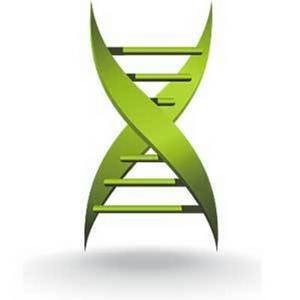A 2023 Gallup survey found 29% of U.S. adults reported being diagnosed with depression at some point in their lifetime, a jump of more than 10 points from 2015. Meanwhile, the share of Americans being treated for depression has reached nearly 18%, the highest rate since Gallup began measuring depression rates using its current form of data.
Additionally, researchers at Mount Sinai’s Center for Neuromodulation report that around 3 million Americans have what they call severe treatment-resistant depression. However, thanks to a scientific breakthrough, help may be on the way.
Researchers are reportedly testing deep brain stimulation (DBS) as a remedy for people with extreme depression. Doctors said the results are encouraging, and they believe that federal approval may come soon in the United States.
The Mayo Clinic reported that the medical procedure is already being used to treat Parkinson’s, Tourette syndrome and epilepsy. Now, Abbott Laboratories, which manufactures deep brain stimulators, is looking to get the device approved to treat depression. The Food and Drug Administration has reportedly agreed to expedite the decision-making process for Abbott.
“At first I was blown away because the concept of it seems so just intense,” said Emily Hollenbeck, who is receiving the treatment for her depression. “Like, it’s brain surgery. You have wires embedded in your brain.”
Hollenbeck said her treatment-resistant depression started after her parents’ deaths. Hollenbeck said she decided to try deep brain stimulation after exhausting all other efforts.
“My family has a very long history of mental illness and depression, specifically,” Hollenbeck said. “My parents actually both took their lives before I was 30.”
According to The Associated Press, during the procedure, surgeons implant electrodes into the brain, which are attached to a device placed under the skin in the chest. The device then controls electrical stimulation and delivers low-voltage pulses.
“Very, very simple, DBS, deep brain stimulation, is a pacemaker for the brain,” said Dr. Brian Koppell, who works at Mount Sinai’s Center for Neuromodulation.
Koppell said the stimulation creates electricity that “speaks the brain’s language.” Koppell explained that in a normal brain, electrical activity resonates freely, in what he likened to a “dance.”
In a brain with depression, Dr. Koppell said that the “dancers” get stuck. DBS works to free the “dancer” or circuit, allowing the brain to function normally. For patients like Hollenbeck, the results are life-changing.
“If I hadn’t had DBS, I’m pretty sure I would not be alive today,” Hollenbeck said.
“The first day after surgery, she started feeling a lifting of that negative mood, of heaviness,” said Dr. Martin Figee, Hollenbeck’s psychiatrist. “I remember her telling me that she was able to enjoy Vietnamese takeout for the first time in years and really taste the food. She started to decorate her home, which had been completely empty since she moved to New York.”
Despite promising research, there are risks such as infections, stroke and bleeding. The Mayo Clinic warns that in rare cases, the movements involved in swimming can be affected. However, the research hospital does say that it is a low-risk surgery.
New York University Langone Health also promotes DBS for depression, which it said “may ease severe symptoms of depression not adequately controlled by therapy, medication, or electroconvulsive therapy.” However, NYU Langone advises that it is appropriate “only for people with severe depression whose symptoms do not respond to medication.”
NYU Langone also said despite FDA still needing to approve the procedure for depression, “several clinical studies have shown it can be used safely and effectively.”
Setbacks have also been a part of research involving DBS. At first, large studies showed little to no difference in treated and untreated groups.
Dr. Stanley Caroff, a professor of psychiatry at the University of Pennsylvania, said that scientists are still figuring out the exact mechanisms in the brain that create depression, which makes it difficult to pick an exact spot to stimulate and select the right patients for DBS.
“I believe from a psychiatric point of view, the science is not there,” Dr. Caroff said when discussing DBS.
However, doctors involved in testing contend that the previous research only focused on short-term results, and treatments were not personalized.
Later research in 2022 revealed that DBS provided long-term, stable relief for patients with depression. Overall, DBS for depression is associated with response rates of 60%. Now, treatments are tailored to individuals with neuroscientists using brain scanning technology to find the precise location to implant electrodes.
“Everybody’s brain is a little different, just like people’s eyes are a little further apart or a nose a little smaller or bigger,” said Dr. Helen Mayberg, who led early research on the procedure.
Abbott Laboratories is now reportedly scheduling a large-scale clinical DBS trial this year.
“The field is advancing quite quickly,” said Dr. Katherine Scanos, a psychiatrist with the University of California, San Francisco. “I’m hoping we will have approval within a short time.”
The Associated Press contributed to this report.







































